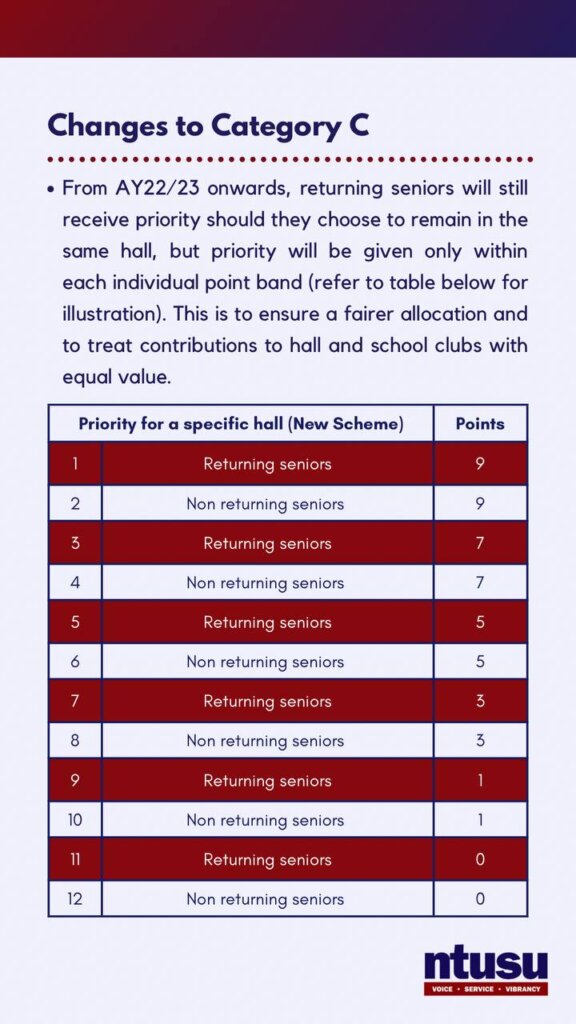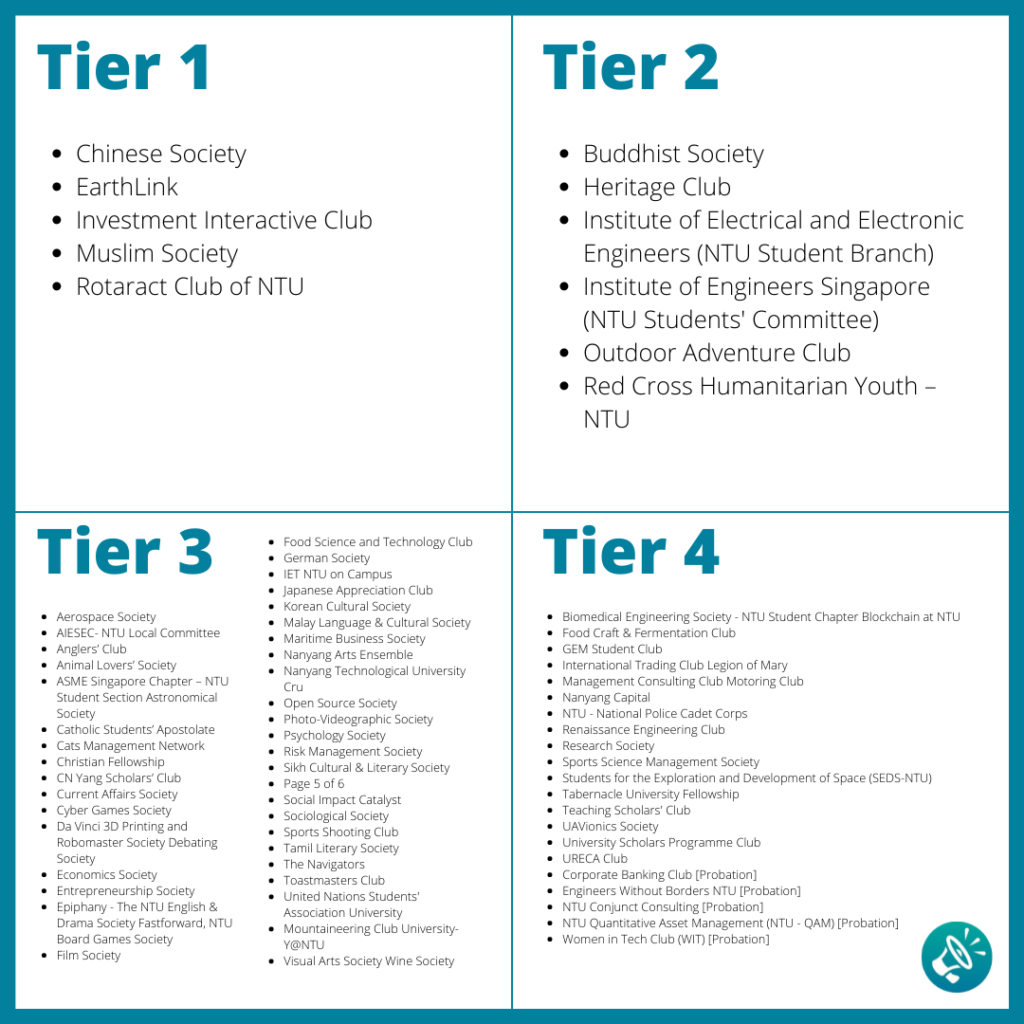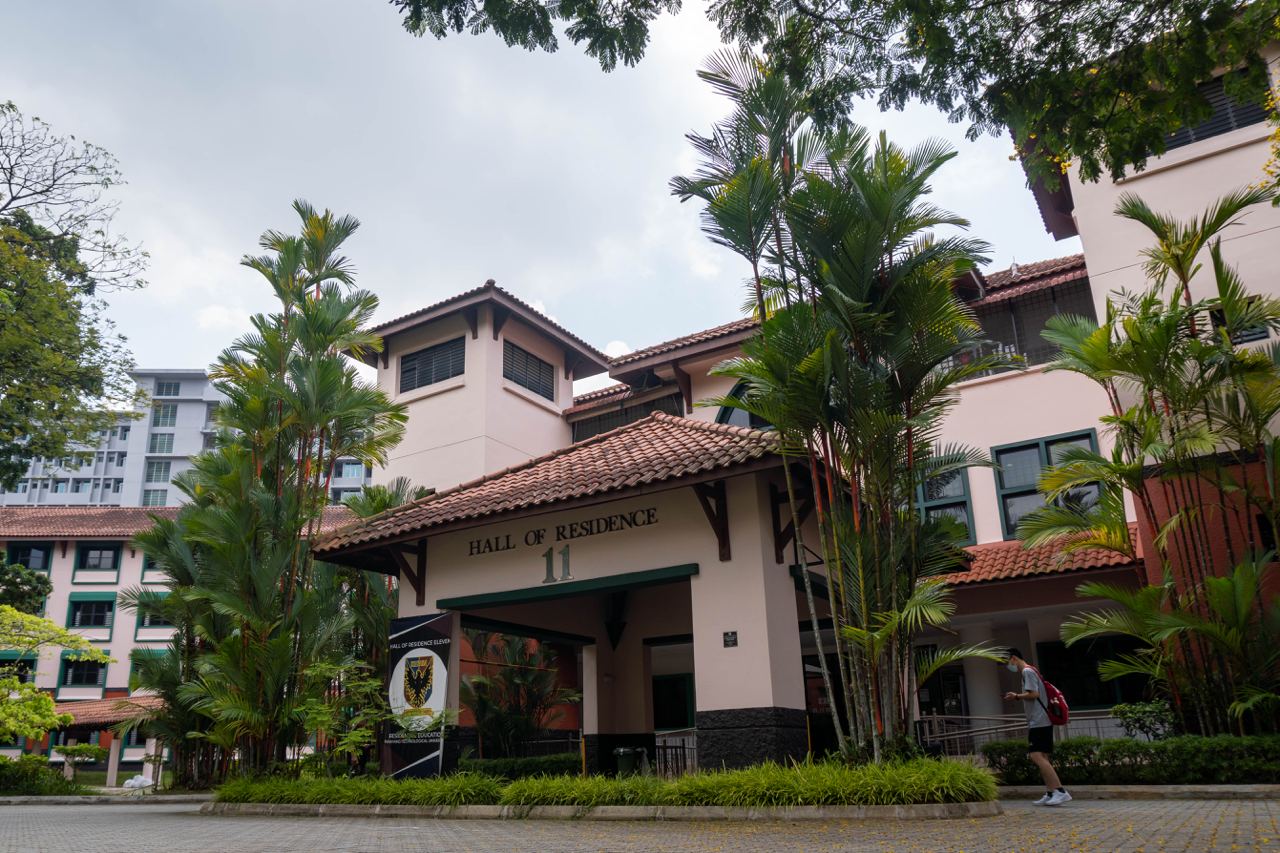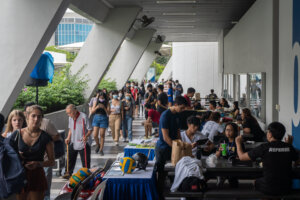- NTU seniors who are active in school committees will stand a better chance to secure a room in their desired Hall, even if they didn’t stay in that specific Hall the previous year
- NTU has removed the limit on how many leadership positions can be held in an Event Committee for a non-constituent club, which is a registered special interest club in school.
- Students will receive one CCA point for being active members in any club – up from zero points previously
Text by Rachael Anthony
Photos by Eugene Goh
NTU seniors who are active in school committees will soon stand a better chance to secure any Hall room of their choice starting next academic year, even if they did not stay in that specific Hall the year before.
The scheme is part of a revamped approach to Hall allocation announced by the Students’ Union on Saturday (Aug 13), and places more emphasis on a student’s rank in the school club, and less on whether they were a resident of the Hall they want to return to.
Before, Halls would first allocate rooms to all returning seniors who earned enough points to qualify for lodging. The Hall would then assign rooms to seniors who were coming from other Halls or trying for a Hall room for the first time.
Starting in AY 22/23, students will be banded based on their co-curricular activity (CCA) points earned in the previous year, said the Union.
Those who earned more CCA points in a previous semester will hence be given priority over current residents who reapply for Hall stay without other merits.

The Union said that more students can take up leadership positions in school-run clubs, which includes a list of some 70 groups, including the Outdoor Adventure Club and Rotaract Club. The list does not include Hall groups.
The change does away with the limit on the number of Chair and Vice-Chair positions that can be held in these committees, allowing more students to rise up the ranks and earn Hall points.
But before this can be done, committees must first get their organisational structure vetted with the Student Affairs’ Office, the Union added.
Meanwhile, non-constituent clubs and committees – like special interest clubs in school that are not part of the Student Union – will be split into a tier system.
Chairs and Vice Chairs in Tier 1 and Tier 2 committees – such as EarthLink and Red Cross Humanitarian Youth (NTU) – can earn seven Hall points for their positions, while Chairs and Vice Chairs from Tier 3 and Tier 4 committees can earn five.

Previously, all Chairs and Vice Chairs received seven points regardless of tier.
These tiers will be based on factors such as the membership size of the group, its internal governance, and the scale of its events and outreach, the Union said.
The Union also introduced Active Members as a new category to campus life activities, where students will receive one CCA point for participation in events, including cultural performances, inter-school, inter-hall and inter-block games, or for being a general helper or volunteer in various events.
New students, excluding exchange students, and those with special needs are still guaranteed Hall stay.
Students recommended by the Senior Faculty in Residence, members of the Hall council or others in leadership roles are also given priority during Hall allocation.



